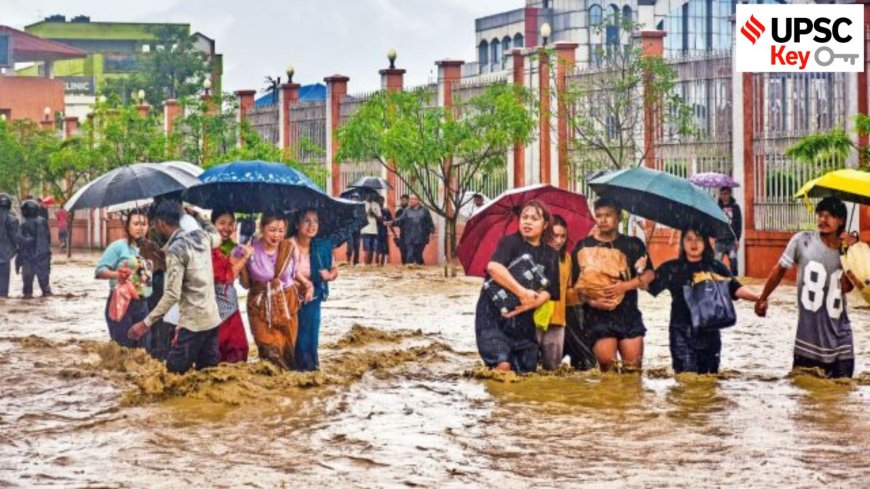UPSC Key: Landslides, Uranium enrichment, and China’s curbs on rare-earths

UPSC Key: Landslides, Uranium Enrichment, and China’s Curbs on Rare-Earths
Breaking News, Daily Updates & Exclusive Stories - asarkari
In an often-chaotic world of information, certain events stand out for their significance. This week, we explore three critical topics pertinent to India's civil services preparations: the aftermath of landslides in the Northeast, the strategic implications of uranium enrichment, and China's recent restrictions on rare-earth materials. The implications of these events resonate across various domains, including environmental policy, international relations, and technological development.
Landslides in Northeast India: A Call to Action
The recent landslides in Northeast India have garnered considerable attention, raising urgent questions about environmental sustainability and disaster management. Over 30 people have lost their lives due to extreme weather conditions exacerbated by illegal mining and deforestation practices. This catastrophe serves as a sobering reminder of the impact of climate change and human activity on natural disasters. Experts are suggesting the need for enhanced monitoring systems and sustainable land-use practices to mitigate the risks of such tragedies in the future.
As civil service aspirants prepare for their UPSC examinations, understanding the complex nuances of disaster management and environmental policies is crucial. For more updates, visit asarkari.com.
The Implications of Uranium Enrichment
Global dynamics around uranium enrichment are shifting fast, especially as geopolitical tensions and energy concerns rise. Countries are increasingly looking to secure access to nuclear energy as a cleaner alternative to fossil fuels. While India has made significant strides in developing its nuclear program, including partnerships with countries like the United States and France, challenges remain. The global nuclear community is watching closely, particularly regarding India's non-proliferation commitments and efforts in safeguarding nuclear materials.
UPSC candidates must grasp the strategic implications of uranium enrichment, not just from an energy perspective, but also in terms of national security and international diplomacy. These aspects will prove vital in their exams and future careers in public service.
China’s Curbs on Rare-Earths: A Global Concern
In recent announcements, China has implemented strict measures on the export of rare-earth elements, crucial for manufacturing technologies ranging from smartphones to electric vehicles. This move has sent shockwaves across various industries dependent on these materials. Countries like the United States and Japan are feeling the heat, prompting discussions about sourcing alternatives or developing domestic capacities in the mining and processing of rare-earths.
Rare-earth elements are vital for technological advancements and are increasingly regarded as strategic resources. For UPSC aspirants, understanding the economic and political ramifications of China's production decisions is essential for predicting global market trends and national responses.
Conclusion
From the localized impact of landslides in Northeast India to the strategic playing field influenced by uranium enrichment and rare-earth policies, these topics underscore the interplay between environment, energy, and international relations. For UPSC candidates, engaging with these current affairs will enhance their preparation and comprehension of broader implications. As always, staying informed is key to successful public service.
As team asarkari, we encourage readers to delve deeper into these pressing issues that increasingly shape our world today.
Keywords:
landslides, uranium enrichment, China rare-earths, UPSC preparation, environmental policy, international relations, energy security, sustainable practices, disaster managementWhat's Your Reaction?
 Like
0
Like
0
 Dislike
0
Dislike
0
 Love
0
Love
0
 Funny
0
Funny
0
 Angry
0
Angry
0
 Sad
0
Sad
0
 Wow
0
Wow
0










































